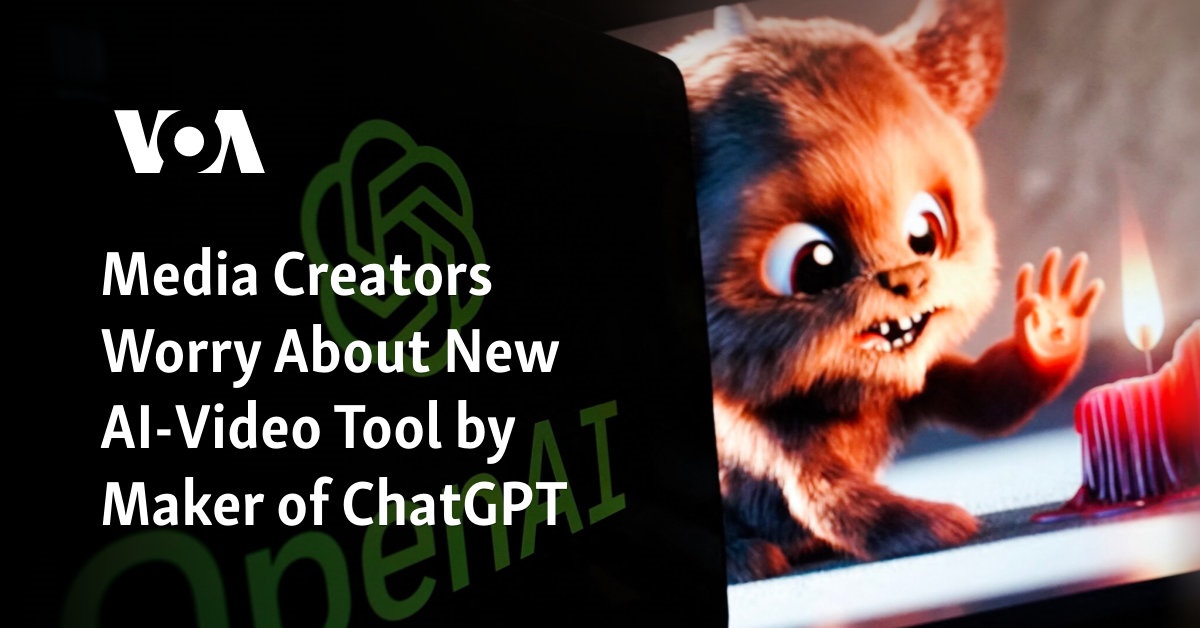Konsep Inti
The author argues that the introduction of the new AI-video tool "Sora" has sparked a mix of excitement and concern among creators in various industries, highlighting the potential benefits and risks associated with its use.
Abstrak
The introduction of OpenAI's new text-to-video model, "Sora," has generated mixed reactions from artists and media professionals. While some see it as a groundbreaking technological advancement that can enhance creativity and efficiency, others express concerns about its potential misuse and impact on traditional creative processes. The debate surrounding generative AI tools like "Sora" reflects a broader discussion within the industry about the balance between innovation and ethical considerations.
Key points include:
- OpenAI introduces "Sora," a text-to-video model promising realistic video creation.
- Industry professionals express both excitement and apprehension about the implications of generative AI.
- Concerns range from artistic integrity to potential misuse during elections.
- Creators anticipate changes in content creation processes due to AI advancements.
Kustomisasi Ringkasan
Tulis Ulang dengan AI
Buat Sitasi
Terjemahkan Sumber
Ke Bahasa Lain
Buat Peta Pikiran
dari konten sumber
Kunjungi Sumber
www.voanews.com
Some Creators Celebrate New AI-Video Tool; Others Worry About Abuse
Statistik
Sora can generate complex scenes with multiple characters, specific types of motion, and accurate details.
Fred & Farid agency anticipates that 80 percent of brand content will be generated by artificial intelligence.
Kutipan
"A terrifying leap forward in the last year" - Basile Simon
"What this new software does seems to be on another level." - Julien Pain
Wawasan Utama Disaring Dari
by Agence Franc... pada www.voanews.com 02-17-2024
https://www.voanews.com/a/media-creators-worry-about-new-ai-video-tool-by-maker-of-chatgpt/7491994.html
Pertanyaan yang Lebih Dalam
How might generative AI tools like "Sora" impact traditional creative roles in various industries?
Generative AI tools like "Sora" have the potential to significantly impact traditional creative roles across various industries. In fields such as video production, graphic design, and gaming, these tools can streamline the content creation process by automating tasks that were previously time-consuming and labor-intensive. This could lead to increased efficiency and cost-effectiveness for companies utilizing AI-generated content.
However, there are concerns that generative AI tools may also disrupt traditional creative roles by potentially replacing human artists and designers. While some creators see these tools as a way to enhance their work and explore new possibilities, others fear that they may diminish the value of human creativity in the industry. It is essential for professionals in these fields to adapt to this technological shift by leveraging AI as a tool to complement their skills rather than viewing it as a threat.
What ethical considerations should be prioritized when implementing AI tools for content creation?
When implementing AI tools for content creation, several ethical considerations must be prioritized. One crucial aspect is ensuring transparency and accountability in how AI-generated content is created and presented to audiences. It is essential to disclose when artificial intelligence has been used in the production process to maintain trust with consumers.
Another key consideration is safeguarding against misuse of AI technology for malicious purposes such as spreading misinformation or creating deceptive visuals. Implementing guidelines and regulations around the responsible use of generative AI can help mitigate these risks and protect against unethical practices.
Additionally, issues related to data privacy and intellectual property rights must be addressed when using AI tools for content creation. Companies should prioritize protecting user data collected during the creation process and ensure that intellectual property rights are respected when generating original works through artificial intelligence.
How can society prepare for the increasing influence of artificial intelligence on creative processes?
As artificial intelligence continues to play a growing role in creative processes, society must take proactive steps to prepare for this technological advancement. Education plays a vital role in equipping individuals with the skills needed to navigate an increasingly automated workforce. Training programs focused on understanding how AI impacts creative industries can help professionals adapt their skill sets accordingly.
Collaboration between technologists, creatives, policymakers, and ethicists is essential in developing frameworks that govern the responsible use of AI in content creation. Establishing clear guidelines around ethics, transparency, bias mitigation, and accountability will ensure that artificial intelligence enhances rather than hinders creativity within society.
Furthermore, fostering a culture of innovation where humans work alongside machines harmoniously can lead to groundbreaking advancements in artistic expression while preserving human ingenuity at its core.
0
